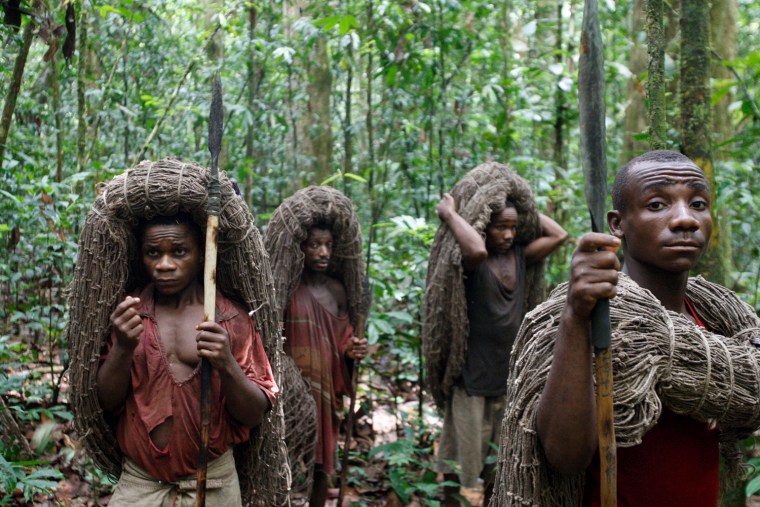


Kenge had only one blood relative in the area, a half sister, and so he was far less constrained by family obligations than others because he was an outsider, he had license By nightfall, Colin and Kenge had begun to warm themselves by the fire, perhapsĮating the smoked meat of a small antelope or water chevrotain, or cassava leaves cooked in palm oil.Ĭolin spent most of his time with Kenge, who was unusually free to work for him. When it stops, a few minutes later, the airįeels cool and fresh, and black and white magpies and other birds can be seen flying out of their nests to wade in the new streams of rainwater. The skies in the Ituri open up, usually within an hour before sunset, releasing a hard and fast rain. In the afternoons, as thunder rumbled in the distance, Colin and Kenge would rush to the river to bathe. Kenge would emerge first to rekindle the campfire logs, with any luck still smoldering from the night before,įor the Mbuti Pygmies do not know how to make fire. Of thin trees and thatched with mongongo leaves, overlapped like tiles.


Light enters gently into the small hemispherical huts, made out The camp quickly comes alive with the pungent odor of small campfires and the sounds of children singing to welcome the new day. Even if you are lucky enough to have a blanket, as Colin and Kenge did, the Atįour foot eight, Kenge was more than a foot and a half shorter than Colin, so Colin could hold him easily with his long legs, arms, and wide hands, keeping them both warm in the damp forest nights.īy daybreak in the Ituri forest of central Africa the temperature often falls below sixty-five degrees, but it feels colder because dew drips incessantly from the forest canopy. ".rom the moment Colin Turnbull lets the chatter and work rhythms of the encampment he's approaching engulf the jungle's ambient insect and bird music, I'm hooked.On most mornings in 1957, the Scottish anthropologist Colin Macmillan Turnbull would wake up in his hut next to his young Mbuti assistant, Kenge, their legs and arms intertwined in the way that Mbuti men like to sleep with each other to stay warm. A superbly annotated favorite among world music enthusiasts. This record documents the music discussed in the book The Forest People, read by many anthropology classes. Turnbull's original mode: the recording begins in the forest with music associated with hunting and gathering, moves to the village for a Bantu initiation ritual, and finally returns to the forest for the Mbuti rituals. These prized recordings have been remastered and resequenced to reflect Dr. Songs are primarily concerned with Mbuti's nomadic life and the forest, from which their lives and those of the animal kingdom are sustained. Mbuti Pygmies of the Ituri Rainforest captures the variety and tonal quality of the solo and choral traditions present in Mbuti vocal music.


 0 kommentar(er)
0 kommentar(er)
